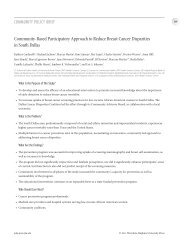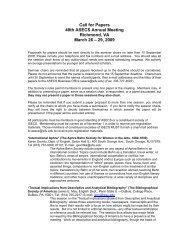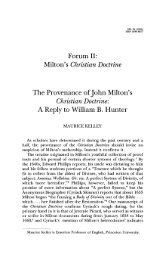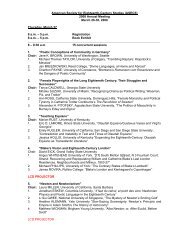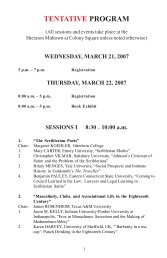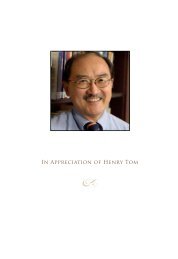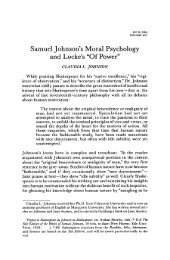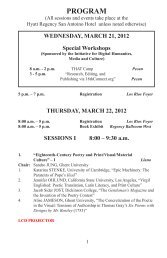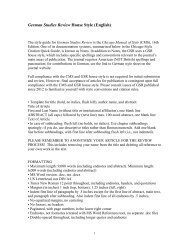Fall 2008 - The Johns Hopkins University Press
Fall 2008 - The Johns Hopkins University Press
Fall 2008 - The Johns Hopkins University Press
You also want an ePaper? Increase the reach of your titles
YUMPU automatically turns print PDFs into web optimized ePapers that Google loves.
Becoming Batman<strong>The</strong> Possibility of a SuperheroE. Paul ZehrBattling bad guys. High-tech hideouts. <strong>The</strong> gratitude of the masses. Whoat some point in their life hasn’t dreamed of being a superhero? Impossible,right? Or is it?Possessing no supernatural powers, Batman is the most realistic of all the superheroes.His feats are achieved through rigorous training and mental discipline,and with the aid of fantastic gadgets. Drawing on his training as a neuroscientist,kinesiologist, and martial artist, E. Paul Zehr explores the question: coulda mortal ever become Batman?Zehr discusses the physical and skill training necessary to maintain bad-guyfightingreadiness while relating the science underlying this process, fromstrength conditioning to the cognitive changes a person would endure in undertakingsuch a regimen. In probing what a real-life Batman could achieve,Zehr considers the level of punishment a consummately fit and trained personcould handle, how hard and fast such a person could punch and kick and thenumber of adversaries that individual could dispatch, what it would be liketo fight while wearing a batsuit, and the amount of food one would have toconsume each day to maintain vigilance as Gotham City’s guardian.A fun foray of escapism grounded in sound science, Becoming Batman providesthe background for attaining the realizable—though extreme—level of humanperformance that would allow you to be a superhero.“As a kid, I wanted to be Batman but always ended up more like the Joker. I only wishI could have read Dr. Zehr’s fascinating book then, so that I would know exactly whatit took to become a real superhero.”—Bradford W. Wright, author of Comic Book Nation“If you really want to become Batman, having a billion dollars in start-up funds and a subterraneanlair is just the beginning. Dr. Zehr’s thoroughly researched and thoughtfullyimagined exploration into the real-life rigors of costumed crime-fighting shows just howDC Comics’ Dark Knight—the original self-made hero—could realistically transforma mere human body into something no less than superhuman. Consider it requiredreading for anyone seriously contemplating donning cape and cowl.”—Scott Beatty, author of <strong>The</strong> Batman Handbook©Mike GhuijinNovember 304 pages 6 x 94 halftones, 51 line drawings978-0-8018-9063-5 0-8018-9063-2$26.95 / £15.00 hcScience“When I walk, every once in a while someone notices they can’t hear my footsteps.Do you know why? Dr. E. Paul Zehr knows. I’m training to become Batman. Mostof the population wouldn’t understand this . . . but beneath and entwined in thesoul of many men is a-hero-in-the-making. Training for that moment that will,thankfully, never come. <strong>The</strong> moment when he must be a hero. <strong>The</strong> moment hetrained for. <strong>The</strong>y’ll never hear me coming. In this book Dr. Zehr knows exactly whatour giddy souls are doing. Here he tells our secret.”— Neal Adams, Batman illustratorE. Paul ZEHR is a professor of neuroscience and kinesiology at the <strong>University</strong>of Victoria, British Columbia, where he is also a biomedical research scholar.He holds black belts in both empty hand and armed martial arts.THE JOHNS HOPKINS UNIVERSITY PRESS www.press.jhu.edu 10



